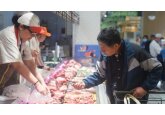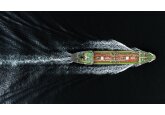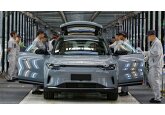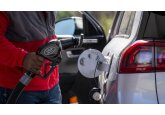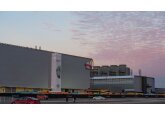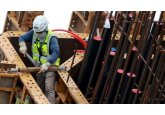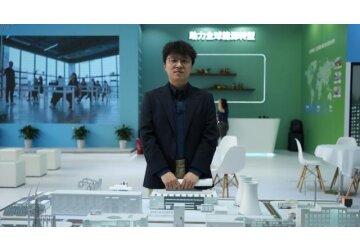
The West says China makes too much. Its workers disagree
Ren Wenbing is reluctant to leave the hollowed-out brick shell which was once a thriving factory in China's manufacturing hub of Dongguan.
The owner of the company has moved production to South East Asia to cut costs. Mr Ren says he is owed more than 80,000 RMB ($11,000; £8,800) in redundancy pay, which could take him years to earn.
But the West has been accusing China of making far too much - it was the dominant message during US Treasury Secretary Janet Yellen's recent visit. She chided Beijing for "unfair economic practices," for producing more than it needs or the world could afford to absorb.
The "Made in China" brand that is etched, sewn or branded on t-shirts, tables and TVs in so many homes around the world is changing. It is now at the heart of the electric cars that are pouring into Germany, and the solar panels that are powering Europe's renewable policies. And that is worrying the West.
Rising trade tensions with the United States, strict Covid lockdowns and a global downturn mean some manufacturers who once flocked to Chinese shores are looking elsewhere. Foreign investment in the country is at a 30-year low.
But now the old industrial pillars of furniture, clothing and electrical goods are struggling, Beijing is looking to its "new productive forces": solar panels, lithium batteries and electric cars.
"I think Chinese companies are leading the whole energy storage market. With innovation, with new technologies, battery sales, PCS [power conversion systems]... well, everything. Right now, I think 80% to 90% of the energy storage equipment are designed and manufactured in China."
China has installed more solar panels in the last year than the United States has managed to build in a decade, the mass manufacturing going on here driving the cost down to half of what it was last year.
Manufacturers across Europe are struggling to compete. In 2023, 97% of the solar panels installed across Europe came from China.
But China's new industries are far less labour-intensive than the ones that once fuelled its spectacular growth - and they require specialised, high-skilled workers and, increasingly, robots. While China's youth unemployment has made the bigger headlines, its overall urban unemployment rate is still over 5%.
The US and the European Union believe this is how China is trying to save its economy - producing cut-price and state-subsidised green technology to sell abroad. They say it's a tactic that is driving down the cost of solar panels and other emerging technology and driving Western firms out of business.
China says its success is down to innovation, not state subsidies and there is a demand for their exports as countries transition from fossil fuels to more climate-friendly sources of energy.
But in more recent years, workers began to demand higher wages, while companies began cutting prices in order to win contracts, squeezing profits further. Then Donald Trump arrived in the White House, slapping tariffs on Chinese products - including shoes. Firms - searching for cheaper running costs and protection from the US-China trade wars - began to look elsewhere.
Now in one almost abandoned quarter of Dongguan, there are miles of empty low-rise buildings which look like ghost factories. The only inhabitant is a solitary security guard waving away any curious onlookers.
The constant hum of sewing machines has been replaced by a chorus of birdsong and the stubborn roots of banyan trees have worked their way under the concrete skeletons of buildings. The warm and often humid southern climate is helping nature take over what man has left behind.
In with the new
Dongguan is not giving up though: it is trying to transform itself as a high-tech hub to try to restore some of its former glory. On the edge of Songshan Lake, the technology giant Huawei has been building a campus to house 25,000 employees. There's a new science park and a string of hotels.
Alan Lee is sleeping in his freshly painted office as he tries to capitalise on the city's new direction. The 32-year-old - having survived the economic downturn to start his business - has set his sights on exporting high-tech machinery to Europe.
bbc.com


